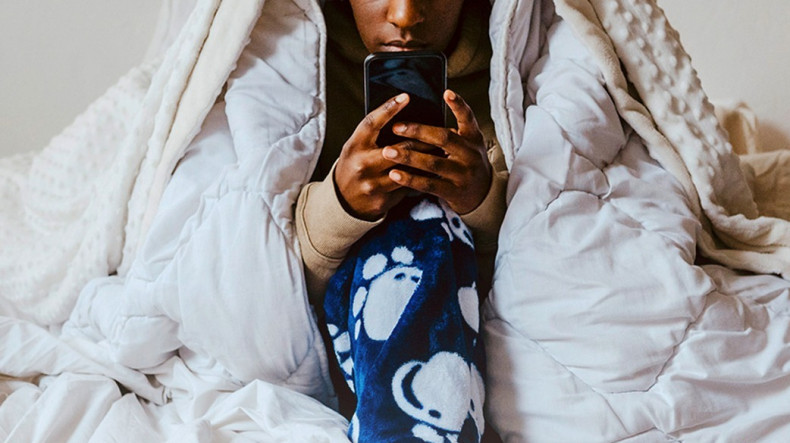
Bed rotting: TikTok’s latest trend
After working another weekend shift, Dr. Jessica Gold returned home feeling burned out and succumbed to her urge to watch TV and sleep most of the day.
As Gen Z would say, she was bed rotting.
Gold is one of the many TikTok users who weighed in on the latest viral self-care term, in which users post videos of themselves tucked under layers of blankets, oftentimes with a phone or snack in hand, CNN reports.
The phrase describes staying in bed all day by choice, thereby “rotting” there, according to Gold, an assistant professor of psychiatry at Washington University School of Medicine in St. Louis.
“I think it is OK to do if you need it,” she said, “and I have let myself do it, as long as you understand why you are doing it and turn to other coping skills as well.”
Bed rotting is similar to having a lazy day, but it’s “more of an immobile term, with less activity,” Gold said.
During a lazy day, you could still engage in activities that you find fun and relaxing while possibly spending time with friends and family, she said.
At first glance, there is likely a lot of good that can come from slowing down to recharge, refresh and reset, said psychologist Simon A. Rego, professor of psychiatry and behavioral sciences at Albert Einstein College of Medicine and chief of psychology and director of psychology training at Montefiore Medical Center in New York City.
However, balance is important for well-being, he said. Spending too much time lying in bed can disrupt your mood and increase stress, said Rego, who is also director of the CBT Training Program at Montefiore.
“Be mindful and avoid overdoing it, no matter how good it may feel in the moment,” he said.
Lounging in bed for more than a day or two is concerning and could point to different mental health issues, Gold said.
“The urge to rot in bed all day, especially if it happens more and more, is likely about something more than just catching up on sleep or needing a day to do nothing, but avoiding the feelings, stress or pain of being awake,” she said.
This sort of behavior has been linked to symptoms of depression and anxiety, among other mental health illnesses, Gold added.
Newsfeed
Videos






























